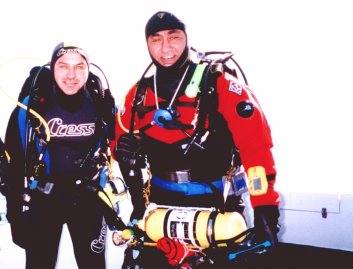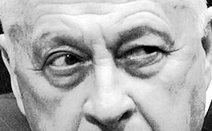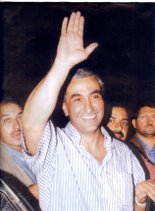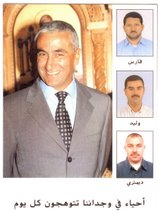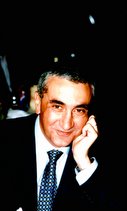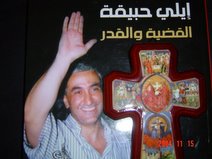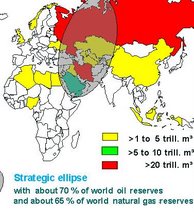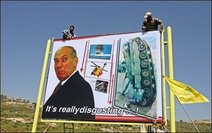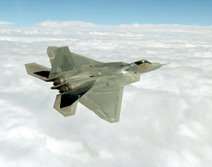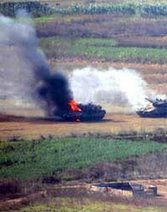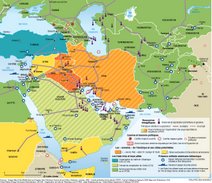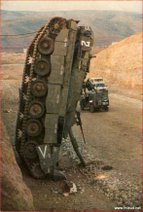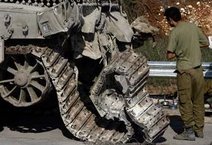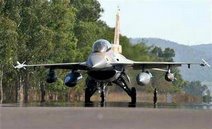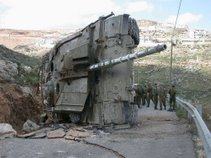
Assassination is considered a political tool to change an unfavorable strategic situation....
----------------------------------------------------------------------------------------------------------------------------
Assassination as a tool of policy is as old as time. The Middle East region in both the ancient and modern era is no exception. Palace politics made the assassination of kings and princes grist for the storyteller's art. The removal of central personalities from the stage to achieve political or strategic objectives testifies to the role of individuals in the making and unmaking of history.... Case in point, the most telling and barbaric act by CIA/MOSSAD newly found "alliance of Evils" which conducted the most horrendous assassination in Lebanon on January 24th 2002, 9.20 AM in Hazmieh, a Beirut Suburb, killing instantly Mr. Elie Hobeika and three of his companions, in order to set in motion, a CIA inspired string of murder-assassinations in Lebanon, the like of which no country on earth has ever witnessed before in recent memory....


Abdel Rahmam Bin Malgam was the assassin who killed Imam Ali, the nephew of the Prophet Muhammad and the Hashemite caliph, in a mosque in Kufa, Iraq in order to start a new chapter in Islamic, Arab, and Middle East history. The assassination was part of a conspiracy to save Islam from fitna or strife. The plan was to assassinate not only Ali but also his rival Muawia, the Omayad caliph, in Damascus, as well as his senior aid Amr Bin Al Ass the wali of Egypt. The idea was noble: if the three protagonists of the fitna, driven by personal ambition, are removed from the stage, Islam and Muslims will be saved the horrors of internal war.

Wars, however, continued. The attempts on Muawia and Bin Ass failed, and success in the case of Ali was the opening of division and strife in the Islamic world between Sunnis and Shi'ites--a reality that to some extent... but with an ardent planning and more... from CIA and MOSSAD attempts to control Middle East politics to this very day.

Assassination in this context is considered a political tool to change an unfavorable strategic situation, usually at a much lower cost than that of military operations. An assassination is a low-cost, high-value political move. Its drawback is that it highlights the role of one very important individual, in a matter of fact, and often ignores the high magnitude of unintended consequences. Khalid Al Islambouli, the assassin of President Anwar Sadat of Egypt in 1981, thought that removing the "pharaoh" would undo Egypt's peace with Israel and restore the glory of Islam. A quarter of a century later, Egypt is still at peace with Israel and the glory of Islam still an unattainable goal. The Israeli assassination of the "engineer" Yahia Ayash in 1996 was intended to end Palestinian resistance to peace with Israel. Instead it opened the gate for more resistance, the end of the peace process and the birth of more Yahia Ayashes....

Assassinations sometimes can complicate an already complicated strategic situation. The assassination of Israeli Prime Minister Yitzhak Rabin did stop the peace process between the Palestinians and Israelis in the 1990s known as the Oslo process; yet it was a clear signal to Israeli politicians of the limits of where they can go in peace-making. In a way, the assassination of Lebanese ex-Prime Minister Rafiq Hariri complicated Lebanon's political situation and changed its strategic environment in relation to Syria and Israel. In both Israel and Lebanon, that assassination operation has had long-term strategic implications. The death of Hariri opened the way for Syria's evacuation of Lebanon, but it also started a process of American Neocon struggles, that gave Israel the space to go to war with Hezbollah in the summer of 2006....

Assassinations are carried out mostly for strategic purposes, and they always have strategic implications....in the eyes of the "planners". Sometimes they serve tactical political goals also..... Most of the post-Hobeika assassination in Lebanon served only to assert USA and Israeli influence.... which Mr. Elie Hobeika adamantly refused the many offers by CIA, to reconsider his position towards the PNAC, and rejoin forces with the Neocon Plans for the Region and the World.... but knowing full well what their real aims are.... Mr. Hobeika refused all their carrots and sticks till the very end, Knowingly, and with his eyes wide open..... They were all designed to spread fear among Lebanese political elites, justices, security services and the Brave, Valiant Resistance, and ready them for the remolding of Lebanese politics away from the Pax-American-Syriana, and into PAX-American proper and Israeli MOSSAD tactical objectives...

Similar tactical assassinations were carried out in Iraq by diverse CIA and semi-resistance groups just to highlight the American needs... there or prevent political and economic development. In the long history of the Arab-Israel conflict, assassinations have been used to send signals and liquidate warmongers and peace-seekers alike. Both the Israelis and the Americans have acquired great skill in these operations..... and have recruited the thuggish murderers of the Syrian Military Intelligence goons of Assef Shawkat, or Shawqat's SMI...as handy-men and official representatives of the infamous "White House Murder Inc.", headed by Elliott Abrams and Dagan..... and the Yankees hiding at Langley.

The assassination of Imad Mughniyeh in Damascus was a mix of the strategic and the tactical. Certainly it reflected the Arab-Israel conflict's extensive legacy of going after the myth to erase symbols (Mughniyah himself), frustrating future operations (possible war with Hezbollah) and simple revenge (a recurring strong motive). Deterrence is the hoped-for end product, but the Middle East history of bloodshed proves that deterrence value is very low for all parties in the region....

Syria was never a target. USA and Israel have sought to cloud the post-Annapolis environment in the region by actions in Lebanon that spoil the Arab League initiative and even in Egypt with Hamas' breach of the Egyptian-Gazan border. An audacious murder in Syria's capital might create the necessary pressure on the Lebanese Resistance, to refrain and restrain.... and cow tow to the American Hegemonic desires to control all areas of the Greater Mid-East, from Central Asia to Darfur and beyond... with the timely Help of Assef Shawkat's goons, the agent of MOSSAD and CIA In Damascus since the early to mid-1990s and presently sitting at the heart of Syria's highest criminal echelons.
All, however, are in vain. Assassinations might delay or confuse, but seldom have they changed the order of events for the long term....?

----------------------------------------------------------------------------------

With tears in their eyes and flowers in their hands people paid tribute to their national hero. Sad at the loss, which can not be compensated yet pride was all over their faces,sacrificed their son of the soil. His was a death for a noble cause of dying for one's own country. Such men are not born everyday, they belong to the rare class of humanity, who are an example in themselves, and they are the ones who set precedents. And they themselves are unprecedented.
